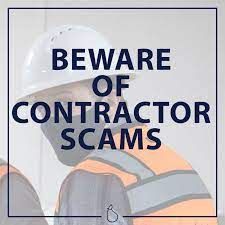How to Stay Safe Around the House This Summer

Another great article in the June 2023 AARP Bulletin discusses ways to stay safe this summer. It covers ways to stay safe around the house, around town, when you travel and outdoors. The first blog will cover ways to stay safe around the house. Each section was written by different experts, so I will highlight some of the bullet points for you here.
Tony Nestor suggests storing at least 3 to 6 gallons of bottled water per person – enough to last three days – along with chlorine dioxide tablets to purify additional water, if available. This is in case there is too much power being used and the power company must turn grids off or there are blackouts, or there is severe weather, and the power is out for days. He also suggests having a hand operated can opener, hand flashlights, and batteries.
Steve Kerber points out that you have only three minutes or less to escape a home fire. Steve says if you’re on an upper floor and have only one staircase, please make an alternate escape route. He also says to make sure you have smoke alarms installed on the ceiling or high on the walls on every level of the house, inside every bedroom and outside sleeping areas. Make sure you check them at least twice a year.
Blake Layton says if you notice signs like pencil-thin mud tubes along your home’s foundation or discarded wings after a termite swarm, call for help right away. Also, if traveling, bedbugs like to hitch onto your clothes, so check the mattress for dark or reddish spots and use the luggage cart for your suitcase instead of putting it on the bed.
Susan McKelvey points out that more than 19,000 burned barbecue chefs and their guests end up in an emergency room. Before the start of grilling season, check the tank hose and connection points for leaks or breaks; spray them with a light solution of soap and water while the propane tank valve is open. If you see bubbles, shut off the tank, because there may be a leak. If you smell gas when lighting the grill, turn off the tank, then the grill. Keep your grill clean, as built-up grease and drippings cause many fires.
Tobie Stanger touches on the home-repair scams and says that summer typically brings an army of scam contractors going door-to-door. They will claim they just happen to be paving a driveway down the street and have leftover material, or they’ll offer to pave your driveway for a low price. If you take the bite, they’ll generally take your money and do the work shoddily, fail to finish the job, or do nothing at all. Be aware of anyone offering to do work unsolicited!
Alyssa Spence talks about garden accidents and says that mishaps involving lawnmowers and other garden equipment sent more than 112,000 adults to emergency rooms in 2021. Handheld tools pose a hazard too, they injured another 43,000 people. Don’t work outside if you’re distracted, overheated, or overtired. Don’t let grandkids ride on the lawnmower with you and shut all gear down completely before cleaning or adjusting. Take frequent breaks and stay hydrated on hot days. Always wear gloves when working with hand tools.
As stated, I just pointed out the bullet points, to read the entire sections, pick up the AARP Bulletin. The next blog will cover ways to stay safe around town. I hope you find some valuable tips in my blogs to keep you safe!




